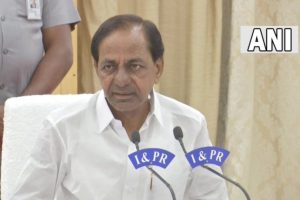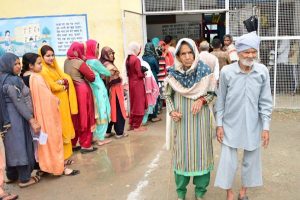Legendary Sarod maestro Ustad Amjad Ali Khan, his sons Amaan Ali Bangash and Ayaan Ali Bangash have recently collaborated with multiple Grammy-winning classical guitarist Sharon Isbin for an album titled ‘Strings for Peace’, an amalgamation of classics. From expression to virtuosity and lyricism, the album’s four tracks cover almost everything. The ragas composed by Amjad Ali Khan receive their world premiere in settings for guitar and sarod.
On the successful completion of ‘Strings for Peace’ and the release of the album, Amjad Ali Khan, in an exclusive interview with TheStatesman.com opened up on his collaboration and the trend of fusion making.
Excerpts:
Advertisement
Please tell us something about your album ‘Strings of peace’.
Taking the beliefs of the artists that the discourse between instruments is a kind of meditative exploration on the nature of sonoral divinity. The idea was to bring the spirit of sharing the great unique treasures of their own artistic traditions, as well as finding common ground in Ragas and Medieval modes. Through this collaboration, the aim is to preserve the essence of both Indian and western traditions so they can flow into each other without artistic compromise.
How is it working with Sharon Isbin? How did this collaboration happen?
We feel honoured to collaborate with Sharon who is so creative, artistic and enthusiastic. We are sure when one hears the album, the intricacy of every beat and rhythm can be felt and one will be transported to a different consciousness. I have always felt that this collaboration is about letting go of what we are best at and more about getting the best out of the other person. I have always valued the western world for their discipline, tradition, conduct and sensitivity. Like cosmic divinity, music knows few barriers or boundaries. I have always admired and enjoyed listening to European classical musicians like Beethoven, Bach, Brahms, Russia’s Tchaikovsky. In fact the idea to turn my ancestral house in Gwalior came after I went to Bonn (Germany) to visit the house of Beethoven. Our renditions are often compared with jazz, which is not misplaced. There is scope for improvisations in both the disciplines, but in a different manner. The message of Indian Classical music is freedom within the discipline. Right from my childhood, I understood the vastness and the oceanic depths of music. I feel that the twelve musical notes are so very powerful and vibrant like the sun and all the harmony around it are like its rays. Just like light and shade! I always had a great desire to create a Sarod Concerto for the longest time. I have always admired the richness of European Classical music. Be it Bach, Beethoven, Mozart, Tchaikovsky; the works!
Over the past decades, how has your relationship with the Sarod changed?
Musicians and listeners of music have been communicating with each other across all barriers through this ‘language’ from time immemorial. As we use flowers in worship, welcoming, honouring, departure, and celebration no matter what our race, origin, religion or language, we similarly arrange musical notes into ‘bouquets’ or compositions which display all our human feelings and emotions. Musical vibrations can convey moods and emotions and have the ability to mould and shape our consciousness. Different types of music can have different effects on the mind-both positive and negative. Each musical note is connected to this most important part of our minds. Music has many faces. Conversation, recitation, chanting and singing are all part of music. Before I talk about the spirituality, I must clarify that there are only two types of music in the world. One is based on lyrics, text language, poetry also known as songs and the other kind of music which is pure sound like the sound of symphony Violin, Cello, Sitar or Sarod. The sound through voice or instruments are the purest form of music. Songs become popular because of the language text or lyrics. It is easier to talk about spirituality through words but it is difficult to realize or explain the spirituality through the sound. I am grateful to God that I belong to the world of sound. There is an old saying that ‘SWAR HI ISHWAR HAI.’ I have realized the existence of God or the creator of the world through sound and music only. I cannot manipulate through sound because sound is very transparent. Language creates barriers; one can manipulate through words.
You are among the most popular faces of Indian classical music. How do you feel about it?
For me, music is not a profession but a passion but a way of life. Education unfortunately could not create compassion and kindness in human beings. Today the human being has become the symbol of arrogance, hatred and destruction. Thank God, the world has more peace loving people. I hope and pray that the younger generation experience peace, harmony and tranquility in the world. As a human being I feel proud to see the achievements of mankind. However, I feel that an educational degree is important for any artist today as a backup plan. Creative fields don’t have formulas or methods. I wish to have music shape the consciousness in a way that contributes to oneness in children, it must be more practical and less theoretic! Music is the greatest wealth that I inherited from my forefathers; one that I am constantly sharing with my disciples. Therefore, there isn’t an instant coffee culture that I can follow.
Talking about technicalities, how important is it to keep advancing yourself on that front?
A great deal of importance is given to tradition in Indian classical music. In fact, tradition and spirituality are the backbone of classical music. Whether in the form of the teaching system or the structure of ragas and talas. Great musicians or Gurus have been likened to pujaris or priests who perform upasana. That is why we touch their feet. It is not an act of subservience but an elevating and liberating action. It is a unique custom that truly belongs only to our culture. It is understandable to adopt or adapt to a modern way of life and merely seek to achieve technical virtuosity but this does not mean that we forget the most essential values of our tradition and culture. Amaan and Ayaan today do strike a correct balance between the two worlds of traditionalism and contemporary times but it’s not something easy to do in today’s times. I see a great journey of Indian classical music being carried forward by brilliant musicians of the younger generation. These people are getting a readymade remedy to work on the research and time spent by me and all my contemporaries in all these years. Thanks to the net, I pods, DVDs and CDs, we are at every home in the world. I am very happy that there are young dedicated musicians, they are also committed performers. I wish them all a very bright and successful future and I am sure that our classical music and legacy will flourish not only in India but all over the world. I am also very satisfied with the response of the whole world to our country and its tradition.
Considering the pandemic, traditional concerts will somewhere take a backseat now. What do you think about it?
Like all industries, the music industry too has been hit very badly with the pandemic especially as a congregation is the first step of the field. So many concerts and projects have all been invariably postponed so it has been a big blow however, better to be safe than sorry. Many artists all over the world are out of jobs too who have been associated with institutions. Our salutations to all the doctors, nurses and front line workers who are doing such a great job round the clock. Sponsored digital concerts will be something in demand at least for the coming months. Music should be a way of life so you are always ready for something. Though, the nature of classical music is magical in its impact only in a concert hall, however, it’s an interval in the planet so I’m sure that our second half will be more magical and breathtaking, god willing.
Over the decades, don’t you think people have changed their way of perceiving Indian classical music? How do you see the trend of fusion making?
There is so much talent. I am so happy to see the progress of young artists. They are very fortunate to get access to so much content today through YouTube etc. However, to be a professional, you must learn from a teacher. My guru often told me that he did what he felt was right and I should do what I felt was right. Generally, a classical musician’s guru imposes all the do’s and don’ts on the shishyas. That’s one reason why there are so many copy masters who sing and play identical like their gurus. I still remember the love and warmth I received from revered Jaddu Krishnamoorthy, the great philosopher and guide. I was very happy to see the guru-shishya parampara being upheld in these schools as well as others that I have visited across our country. It is this legacy that will facilitate the growth of knowledge and wisdom in harmony with well-deserved Indian traditions, in current times. I am really proud of the achievements of mankind but technology must be cultivated in harmony with peace and tradition. What worries me is that the future children of this world should not behave or look like Robots. To ensure thus, it is vital that modernization must be accompanied by a reverence for India academic traditions which have been valued through times. Today, especially after 9/11, as a musician and as an artiste, I often think about what is the contribution of education in this world? We are still struggling on account of religion and power. We need kind and compassionate people in the world and I see classical music as a means to nurture such feelings. is room for music beyond technical brilliance and firework mastery. There is a word of punctuation even in music. Appeal, Aesthetics, Poise are all musical terms for me. I am very happy with the progress of the students who are realizing and feeling music as a way of life.
Your upcoming projects, if any?
Most or rather all tours have been pushed to 2021. I hope and pray that the planet heals very soon and that we are able to revisit earth once again. I hope that as a race, we are more tolerant and sensitive to the planet. We will have some online performances selectively. Some releases that are now ready will be available on all music platforms.
Advertisement











